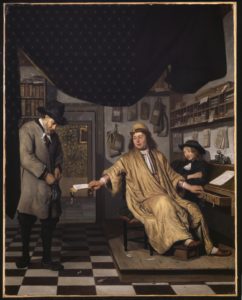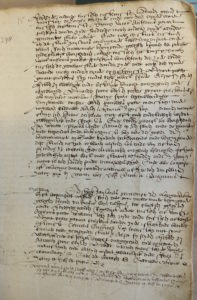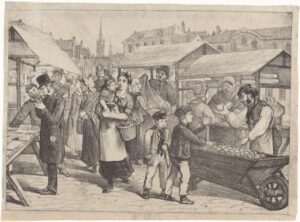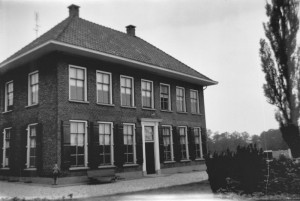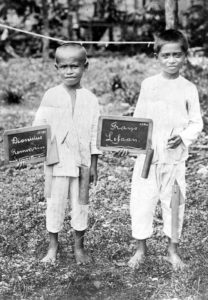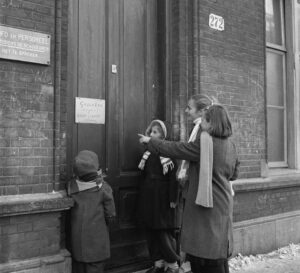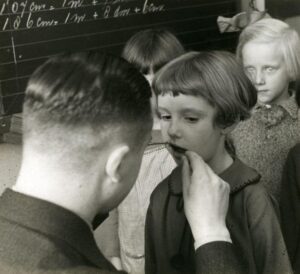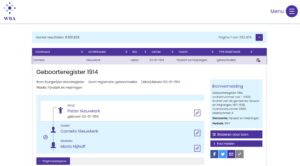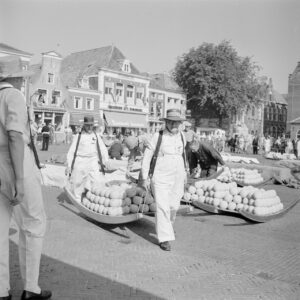The verb "compareren" means to compear: to present oneself in a legal matter. Court or notarial records often start with "Compareerde voor mij" [compeared before me]. This is often followed by a formal testimony or request. … [Read more...]
Dutch term – Transport
The Dutch word transport can simply mean transport, but in legal records it means the transfer of property. Deeds of sale are sometimes called transportakten [transport deeds] or are recorded in transportregisters [transport registers]. Transport deeds will mention the previous and new owners, any rights or encumbrances attached to the property (like tithes, right of way), and a description of its location. … [Read more...]
Dutch term – Koper
A koper is a buyer. You can find the term in land records, such as deeds to purchase a house or in notarial or court records for estate sales. The term is also used in occupations, such as wijnkoper (wine buyer; wine merchant) or houtkoper (wood buyer; wood trader). As an adjective, koper means copper. You may encounter it in some estate inventories that include copper items in the house. … [Read more...]
Dutch term – Geërfde
In the eastern parts of the Netherlands, a geërfde was a heritor, the owner of a property with certain rights in the commons. The heritors of a district would come together periodically to discuss matters relating to the commons. The geërfde would have a vote in any decisions made there, for example relating to the sale of common land, taxation, allocating funds for road repairs, and other matters involving the community. The records of such meetings can provide interesting insights into the … [Read more...]
Dutch term – Roepnaam
A roepnaam is a call name. Roepnamen were often derivatives of the official name. For example, these were the call names of my grandparents: Hendrik Hoitink, known as Henk Gesiena Wilhelmina Woordes, known as Mien, a diminutive of Wilhelmina. Johannes Marijnissen, known as Jan. Catharina Flooren, known as Toos. Catharina was shortened to Cato, which became Toos (pronounced "toes") in some southern parts of the Netherlands. … [Read more...]
Dutch term – Openingstijden
Openingstijden are opening hours. If you want to visit an archive, check their website for opening hours. Some archives require making an appointment or booking a seat. Archives increasingly have virtual opening hours too, where you can chat with a reading room attendant to ask questions about your research. This chat service can be very helpful if you have quick questions about using the website or which sources to use for your research. … [Read more...]
Dutch term – Dierentuin
A dierentuin is a zoo. The oldest zoo in the Netherlands is Artis in Amsterdam, founded in 1838. … [Read more...]
Dutch term – Tandarts
A tandarts is a dentist. Dentists used to travel around for services at regional fairs. It did not become a regular medical profession until the twentieth century. By the 1930s, dentists started coming into schools to make sure the children's teeth were in good health. … [Read more...]
Dutch term – Bladeren
Bladeren means to browse, to turn the pages of a book. You may encounter the term on a button or link when you are using a genealogical website where the index is attached to the whole book rather than to the specific page. By clicking "Bladeren," you will open the book and can look up the page using the details in the index. … [Read more...]
Dutch term – Kaasmarkt
A kaasmarkt is a cheese market. Many towns in the west of the Netherlands are famous for their cheese, like Gouda and Edam. These towns have their own cheese markets, though the most famous cheese market is in Alkmaar. … [Read more...]
